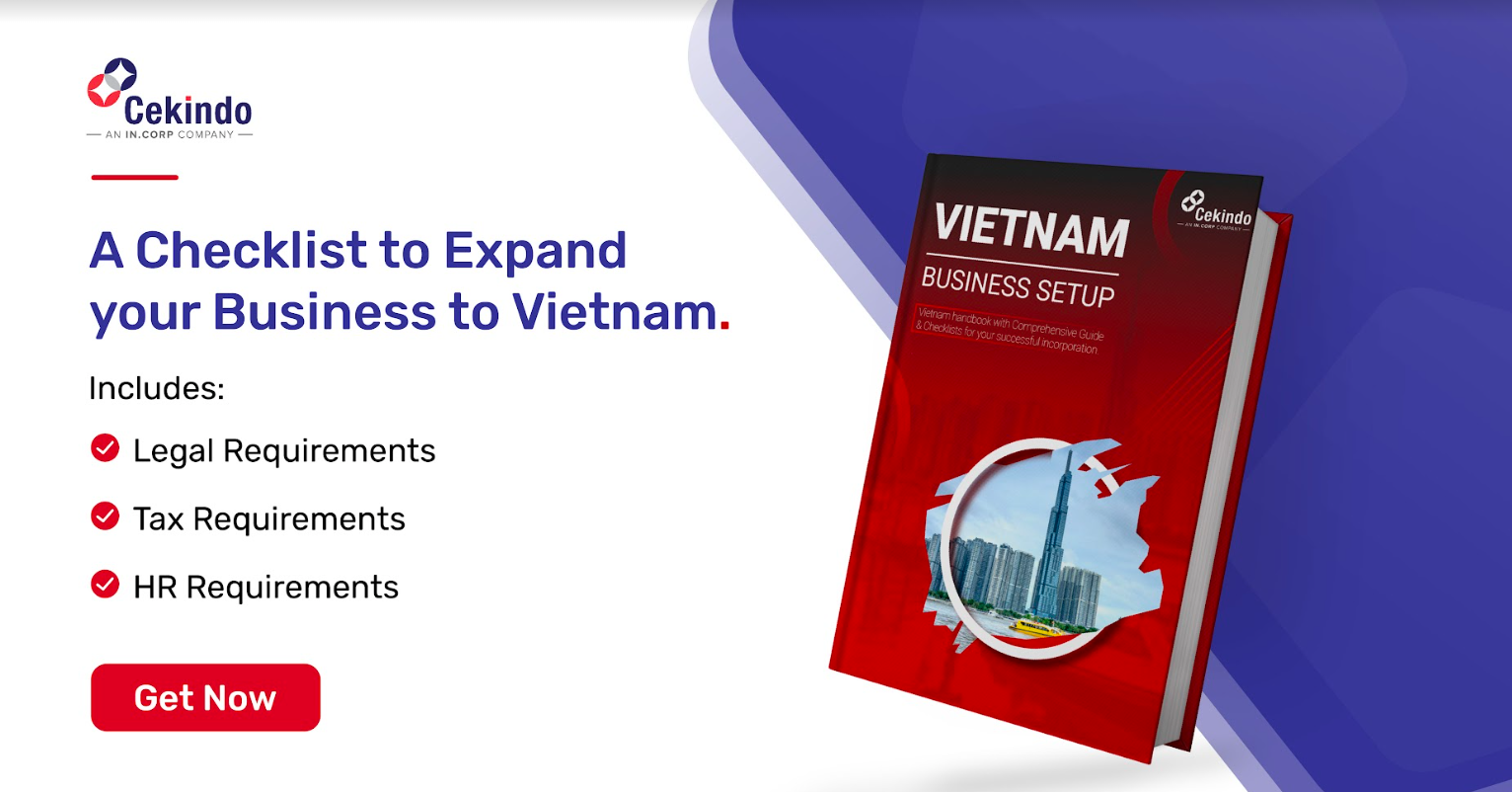Vietnam has risen to become a top location for foreign investors and business development outside of Asia in addition to being recognized as one of the region’s fastest-emerging economies. The amount of foreign direct investment entering Vietnam increased by 13.5% from the previous year in 2022, the highest level in the previous five years. In the meantime, FDI promises, which represent the amount of future FDI disbursements, fell by 11% annually to USD 27.72 billion
It’s unsurprising that Vietnam, a rising middle-income nation, was one of the few to have positive economic growth during the pandemic, increasing by 2.6 percent in 2021. Furthermore, the economy of Vietnam expanded by 8.02% in 2022, its highest gain since 1997, supported by robust domestic retail sales and exports.
In addition, Vietnam’s position as the third-largest market in Southeast Asia backed by rapid growth and low costs are just a few main factors that draw in foreign entrepreneurs and business owners.
This article summarizes the key steps you need to be aware of in order to expand to Vietnam successfully.
Encouraged Sectors in Vietnam for Foreign Investors
Most sectors in Vietnam are available to international investment, some of which are listed below:
- Research and development
- Software Production
- Manufacturing
- Goods manufactured and produced for exports
- Processing of raw materials
- Sectors utilizing cutting-edge manufacturing techniques
- Sectors that effectively use natural resources
- Building constructions (infrastructure facilities and industrial productions).
- High-tech activities, high-tech industrial support products, R&D activities, production, and products derived from technological and scientific discoveries in line with applicable laws, technology.
Restricted Sectors in Vietnam for Foreigners
The Vietnamese government restricts foreign investment in few sectors that are protected, mostly tourism and . The following are associated with the forbidden industries:
- Newsgathering, press activities, and public opinion polling.
- Services for contracting Vietnamese laborers to work abroad Services for industrial property representation and intellectual property evaluation.
- Vacation services (except for international tourism services for inbound tourists).
- Oil & Gas Exploration
Starting A Business in Vietnam: How to
Starting a business in Vietnam is sometimes more difficult for foreigners than western countries, due to the fact that Vietnam is an emerging market and it is still adjusting its legal framework and business outlook. The process is significantly more challenging because many obligations that new corporate entities must fulfill may be firsts for overseas corporations.
We made the most detailed step-by-step guide to setting up a business in Vietnam for investors, now available as an interactive checklist:
Choose your Legal Entity
A foreigner must select a legal organization or structure suitable for her business operation to incorporate a company in Vietnam. Three types of legal entities are typically acceptable to investors:
- Limited Liability Company
- Representative Office
- Branch Office
- Joint-stock company
Required Documents to Start a Business in Vietnam
When establishing a business in Vietnam, foreigners must have the following documentation:
- Legalized Copies of Foreign Documents (Passport, Bank Statements ETC).
- Office Lease, must have a registered office address in Vietnam
- Apply for an Investment Registration Certificate (IRC)
- Establish a business, issue an Enterprise Registration Certificate (ERC)
- Official Seal Engraving with your company info, declared to the government
- Open a bank account and prove the investment balances
- Initial Tax Registration. Submit to the Tax Department
Note: The account balance must be equal to or greater than the new company’s charter capital amount.
- Lease Agreement (or Memorandum of Understanding) and Landlord-Related Documentation for a new Company’s Head Office)
Currency Restrictions for Foreign Investments
Foreigners can transfer money abroad using their Vietnamese banking services as long as the funds are from a tax-paid source and there are no outstanding tax liabilities. Prior to sending money abroad, the following conditions must be satisfied:
- A person’s international bank account
- Spend money abroad (usually requiring an invoice or other commercial documentation where a payment is being made to someone not the account holder).
- You cannot send money abroad until you have finalized your taxes, usually on March 31s of the following year
About Us
InCorp Vietnam is a leading provider of global market entry services. We are part of InCorp group, a regional leader in corporate solutions, that encompasses 8 countries in Asia-Pacific, headquartered in Singapore. With over 1,100 legal experts serving over 15,000 Corporate Clients across the region, our expertise speaks for itself. We provide transparent legal consulting, setup, and advice based on local requirements to make your business perfectly fit into the market with healthy growth.
Don’t take our word for it. Read some reviews from some of our clients.

